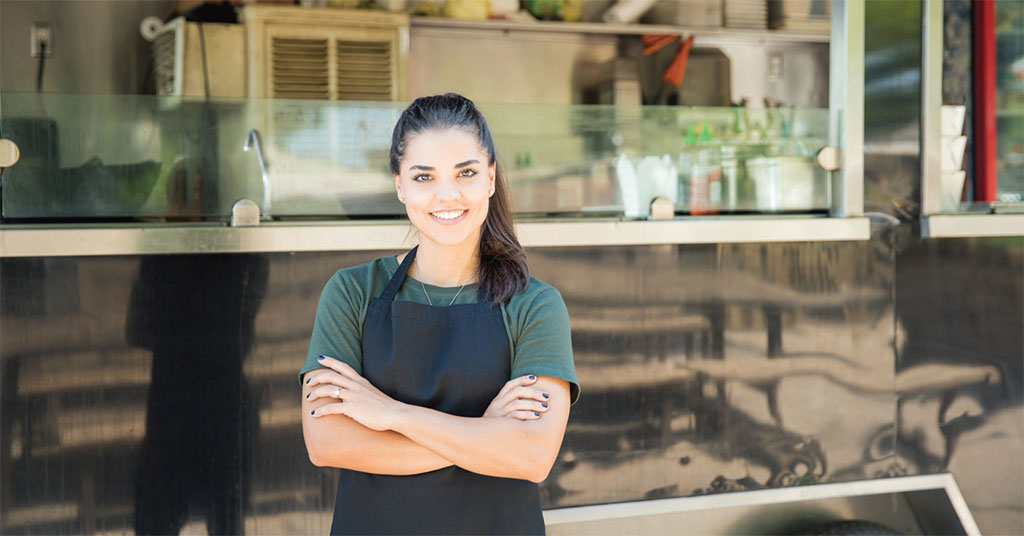Food 'a la Cart' Mobile Food Trucks and Carts on the Rise

It's no big secret that the restaurant industry is rapidly changing. The industry as a whole is adapting to a new era of technology, innovation, and consumer expectations--including increasing demands about the quality and convenience of their food.
From vendors selling hot dogs on the streets of New York City to food trucks circling the nation, mobile food has been in hot demand for decades. The billion-dollar industry that is food trucks was made popular after the Great Recession, as it was a less expensive alternative for independent entrepreneurs looking to bring their product to the masses.
However, Americans have been selling food from wheels for more than a century. The appeal is obvious. Mobile food platforms:
- generally have lower overhead
- require fewer employees, and
- have the flexibility to move from one location to another.
Testing 1, 2, 3...
Historically, food truck operators have used their trucks to test their concept before committing to a traditional brick-and-mortar restaurant with all that involves, from the expense of a lease to hiring a reliable crew of front-line employees and managers, as well as the accompanying legal and regulatory hurdles and challenges.
The flexibility that mobile food trucks provide can be used in many different ways to meet the changing needs and tastes of consumers, from changing tastes to time-starved lunch breaks. Brands can use mobile trucks or carts as a low-cost platform to test new products, gather real-time feedback, and generate social media engagement before official launches of products in markets. And, if testing proves successful, a food cart or truck can provide an additional, ongoing revenue stream for a brick-and-mortar franchisee or operator.
Interestingly, 70 percent of consumers have said that they would patronize a food cart operated by their favorite restaurant. But only 15 percent of the top 200 restaurant chains operate food trucks, according to reports from the National Restaurant Association.
The demand is here, and the demand is real. We're seeing a shift as major restaurant brands are now playing catch-up and looking to establish a mobile fleet. With mobile food platforms, brands can serve their customers beyond their brick-and-mortar locations during new construction, remodels, and marketing events.
With retail rents and competition for traditional brick-and-mortar stores continuing to soar in major cities across the United States, many franchisors simply do not have the resources to establish a sustainable mobile presence. Most important for success, brands must create an entire strategy around a smart extension of their brick-and-mortar concept into mobile food.
Enter Move Systems, and companies like us, that have grown up to meet the needs of franchisors and customers alike. We've simplified and modernized the mobile business model with our turnkey mobile cart, which has helped franchisors like Dunkin' and Nathan's Famous (as well as independent operators) have a cost-efficient, mobile presence to reach customers in places beyond their traditional retail locations, from sporting events to grand openings to holiday festivals and more.
Our particular mobile platform is a high-tech, portable cart that uses a combination of solar energy and rechargeable battery power, which allows the cart to roam free or plug in to a city's power grid. With a dedicated focus on promoting sustainability, our carts are estimated to produce 60 percent less greenhouse gas and 95 percent less smog-causing pollution than traditional food carts or trucks. The flexibility of a smaller food cart (as opposed to a food truck) allows a brand to set up operations in far more locations, including sidewalks, plazas, park pathways, and even in front of their own stores.
In our experience, for franchisors to succeed in the mobile food segment, they first must understand the logistics of a hub-and-spoke strategy and be cognizant of how to bring their menu into a quick-serve format so their mobile food cart can become an extension of their brick-and-mortar locations.
Additionally, franchisors also must holistically examine locations for their mobile kitchen and navigate the permitting process on a county-by-county and city-by-city basis, as regulations, if they exist, continue to evolve along with the changes in mobile strategies, tactics, and technologies. Franchisors also must choose the right combination of menu items that will increase throughput and meet customer demand. And finally, they must have the right marketing, including the use of their mobile cart or truck as a branding tool to attract customers.
Ultimately, brands committed to innovation and to providing a top-quality customer experience are going to thrive by creating--and increasing--customer loyalty and powering their long-term success.
James (Jim) Meeks is CEO of Move Systems, a veteran-run company that creates a turnkey, high-tech, sustainable mobile food cart platform for chain and independent restaurant concepts.
Share this Feature
Recommended Reading:
Comments:
comments powered by DisqusFRANCHISE TOPICS
- Multi-Unit Franchising
- Get Started in Franchising
- Growth
- Operations
- Open New Units
- Leadership
- Marketing
- Technology
- Legal
- Awards
- Rankings
- Trends
- Featured Franchise Stories
FEATURED IN

Franchise Update Magazine: Issue 1, 2020






 The franchise listed above are not related to or endorsed by Franchise Update or Franchise Update Media Group. We are not engaged in, supporting, or endorsing any specific franchise, business opportunity, company or individual. No statement in this site is to be construed as a recommendation. We encourage prospective franchise buyers to perform extensive due diligence when considering a franchise opportunity.
The franchise listed above are not related to or endorsed by Franchise Update or Franchise Update Media Group. We are not engaged in, supporting, or endorsing any specific franchise, business opportunity, company or individual. No statement in this site is to be construed as a recommendation. We encourage prospective franchise buyers to perform extensive due diligence when considering a franchise opportunity.